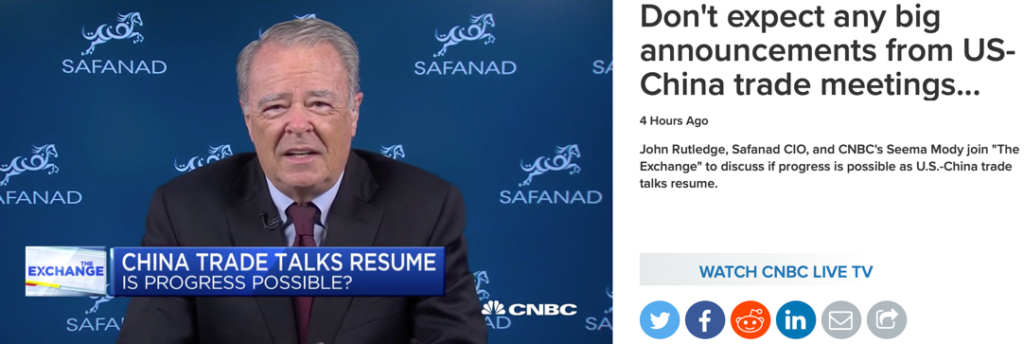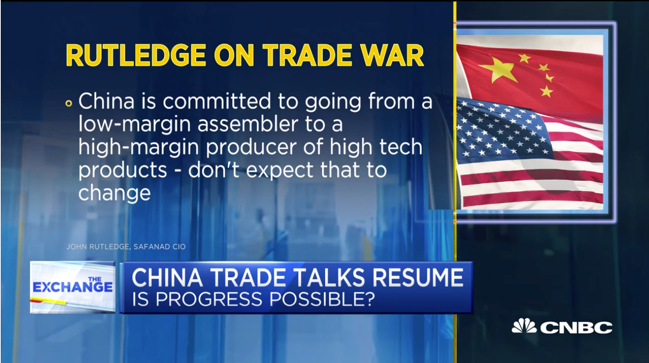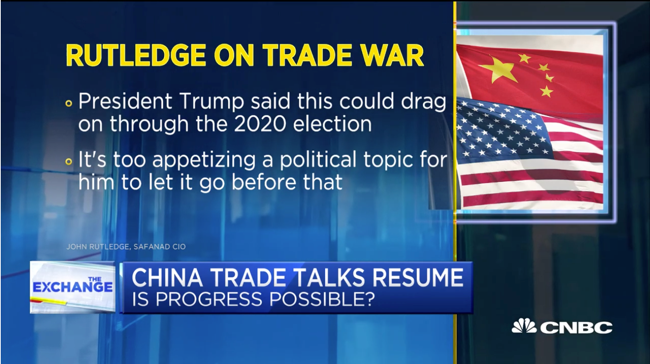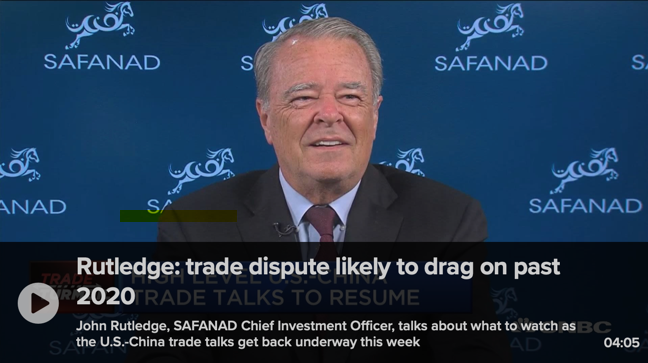Summary: I spoke with Tyler Mathisen and Seema Mody yesterday on CNBC’s The Exchange about the flurry of confusing messages around the first day of the trade talks. You can see a short video of the interview by clicking this link.

Steve Mnuchin and Bob Lighthizer have the hardest assignment in the world. Yesterday, while they were meeting with the Chinese delegation in Shanghai, Pres. Trump was using the meetings to play election politics, launching a flurry of offensive, erroneous, and self-contradicting Tweets. Someone should tell him that the Chinese delegation all have (Huawei) Smart phones in their pockets. And they all read English.
Among the Tweeted messages flying around were:
- “Trade talks are going well.” (I hope so.)
- “We are raking in billions of dollars in tariffs.” (No, you are raking in billions of dollars out of the pockets of US consumers. Tariffs are, essentially, an excise sales tax on selected Chinese goods collected by raising prices for consumers.)
- “China is doing very badly, worst year in 27.” (Their annual growth rate starts with a 6; ours starts with a 2.)
- “That is the problem with China, they just don’t come through.” (insulting much?)
- “…they always change the deal in the end to their benefit.” (see above.)
- “our economy has become MUCH larger than the Chinese economy in last 3 years….” (Wrong, their economy has grown by almost 20% over the last 3 years, 3x as much as ours.)
- “they should probably wait out our election to see if we get one of the Democrat stiffs like Sleepy Joe. Then they could make a great deal…” (in that case, let’s all go to lunch.)
- “we have all the cards…”
Why on earth would Liu He, reading the Tweets, think it is a good idea to try to work out a trade deal today?
What we do know is that the trade war has cost the global economy roughly $1.2 trillion in lost output so far, that it has disrupted supply chains everywhere, that it has produced a precipitous drop in capital spending, that it has induced global investors to pull capital out of China and driven the RMB down by some 10% against the dollar (making Chinese goods cheaper in the US!), and that it has forced central banks to shift policy toward lower rates–as the Fed did today–which further inflates sky-high asset prices and increases the likelihood of a financial infarction (technical term.).
My conclusion is Pres. Trump is using the trade war as a political asset for his 2020 campaign, not as an economic event of massive importance to the US and the world economies. It is looking more and more like he will keep it alive through the next election. It is simply too valuable a marketing asset to lose.
JR




